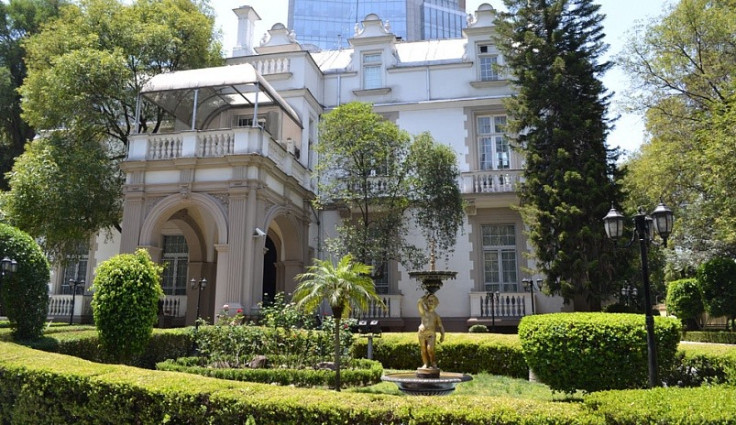
The U.S. believes Russia is using Mexico City's proximity to the country as a way to build up on spy operation tactics once used during the Cold War.
According to U.S. officials and former intelligence officers, Moscow has gone back to old tactics and added dozens of new personnel to its embassy staff in the Mexican capital for the past few years despite its limited trade ties with the country.
According to an NBC report, the trend is concerning Washington as officials believe the extensive buildup is aimed at bolstering the Kremlin's intelligence operations targeting the U.S., as well as its propaganda efforts aimed at undermining both the country and Ukraine.
The Biden administration has raised the issue with the Mexican government. "Russia has really invested in Mexico in terms of seeking to extend their presence," a U.S. official told NBC.
In response, government agencies have been asked to remain alert. CIA Director William Burns said earlier this month his agency and the federal government are "sharply focused" on Russia's expanding personnel in Mexico, which he said was partly to the result of Russian spies being expelled from foreign capitals after Russia's invasion of Ukraine.
"Part of this is a function of the fact that so many Russian intelligence officers have been kicked out of Europe," Burn said. "So they're looking for places to go and looking for places in which they can operate," he added.
Similarly, former intelligence officials argue that Russia's recent moves in Mexico reflect a more aggressive posture by its intelligence services that seek to silence critics, undermine support for Ukraine and weaken Western democracies in the process.
In July, Russia allegedly planned to assassinate the CEO of a major German arms manufacturer that provides artillery ammunition and armored vehicles to Ukraine. Earlier this year, in May, it was reported that Russia was conducting sabotage campaigns across Europe to cut any Western support for Ukraine.
The attempted sabotage included an alleged Russian-backed arson attack on a Ukranian-linked warehouse in the United Kingdom, a plot to bomb or set fire to military bases in Germany and attempts to hack and disrupt Europe's railway signal network, according to European and British authorities.
"They're willing to take much higher risks now than maybe they would have in the immediate post-Cold War," said Paul Kolbe, who worked for 25 years as an operations officer in the CIA.
According to a 2023 report by Spytalk, more than 600 suspected spies have been expelled from Russian embassies across Europe since its invasion to Ukraine in February of 2022. And according to the foreign ministry's Directory of Foreign Missions, by September of 2023, the Mexican government had authorized 37 new diplomats in the Russian Embassy in Mexico City on top of the 49 that were already there.
Due to Mexico's proximity with the United States, former intelligence officers argue that part of the reason behind the increasing presence of Russian diplomats in Mexico is to prepare possible sabotage operations in the event of a war with the U.S..
Officials are also concerned about Russia's capabilities to manipulate the information landscape in Mexico.
In recent years, Russia has expanded its state-funder media outlet RT in Mexico. In April, the Russian ambassador in Mexico posted on the social media platform X a false report claiming that the U.S. was recruiting members of drug cartels from Mexico and Colombia to send them to fight in Ukraine.
❗️Estados Unidos recluta a miembros de cárteles de la droga de México y Colombia para enviarlos a Ucrania
— Embajada de Rusia en México (@EmbRusiaMexico) April 9, 2024
🇺🇸Empresas militares privadas de Estados Unidos (bajo la dirección la Administración Federal Antidrogas y FBI) están reclutando en las cárceles a representantes de los… pic.twitter.com/8acelZufoE
As mentioned, the presence of Russian diplomats and spies in Mexico is nothing new. During the height of the Cold War, U.S. intelligence estimated that at least 150 KGB officers were working in Mexico under cover of diplomats, clerks, drivers and journalists.







